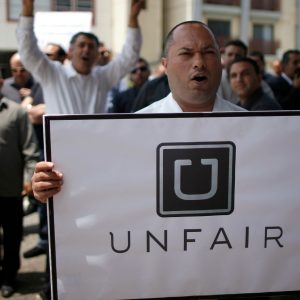- February 7, 2017
- by Alex Song
Education in the US Could Change Drastically
- February 2, 2017
- by Alex Song
The Obamas on a Much Needed Vacation
- January 16, 2017
- by Alex Song
Netflix Stock Stronger Than Ever
Voters Urge Electoral College to Vote For Clinton: Why This Matters

- Nov 15, 2016
- by Alex Song
You might be asking why even bother asking a bunch of random strangers to vote for Clinton now after the election already happened. If you didn’t know, the people’s vote or “popular vote” does not always determine the winner of an election. Each state is granted “electoral college votes” based on how population per state. The winner of an election is determined by the electoral college vote. Trump winning the 2016 election is actually one of the rare instances where a candidate won with the electoral college but NOT the popular vote. That means in terms of overall voter turnout Hillary Clinton actually had 500,000 to over 1 million more votes than Trump did.
Now you’re probably asking, “How does this many any sense?” and you’re not alone. When a candidate wins from electoral college votes even though they lose the popular vote that is called a “misfire.” These misfires are actually fairly rare and have only happened 6 times (including Trump) in US history. The reason why this is possible is because the number of electoral college votes each state gets is based on population of that state assuming the more people the state has the more it aligns with the wishes of the country as a whole. But, there is a rule saying that all states must have at least 3 electoral votes regardless of population size. That means certain states with tiny populations actually have more voting power than larger states. Vermont actually has one elector for ever 168,000 people (roughly) but in New York there is only one elector for every 535.000 people (roughly). How is that fair?
But enough of the history lesson, why are people urging the electoral college to vote for Clinton after the election is over? That’s because unlike the rest of us, the electoral college actually votes on Dec 19th. Things just got interesting.
This technically means that the electoral college votes that are pledged to a candidate can actually vote another way. An electoral college member voting for a candidate that is against the popular vote is perfectly legal but is very frowned upon. To vote against your state’s popular vote essentially means betraying the people you have sworn to represent. People that vote against their state’s winner is called a “faithless elector.” It is common practice to give up your seat on the electoral college when you become a faithless elector. Historically, it is extremely rare for an elector to switch to a losing candidate but much more likely for a losing state to switch their votes to the winning candidate. So that means it is unlikely that enough electors will vote Clinton’s way when the time comes. Clinton needs 39 more electoral votes in order to oust Trump. That sort of sway has never happened before so continue to protest and sign petitions, just be prepared for what may come.
CATEGORIES
- Breaking News(21)
- Buzz+(54)
- Life+(19)
- Most Read Stories+(13)
- Science+(15)
- Uncategorized(2)
- Video+(3)







Latest Comments